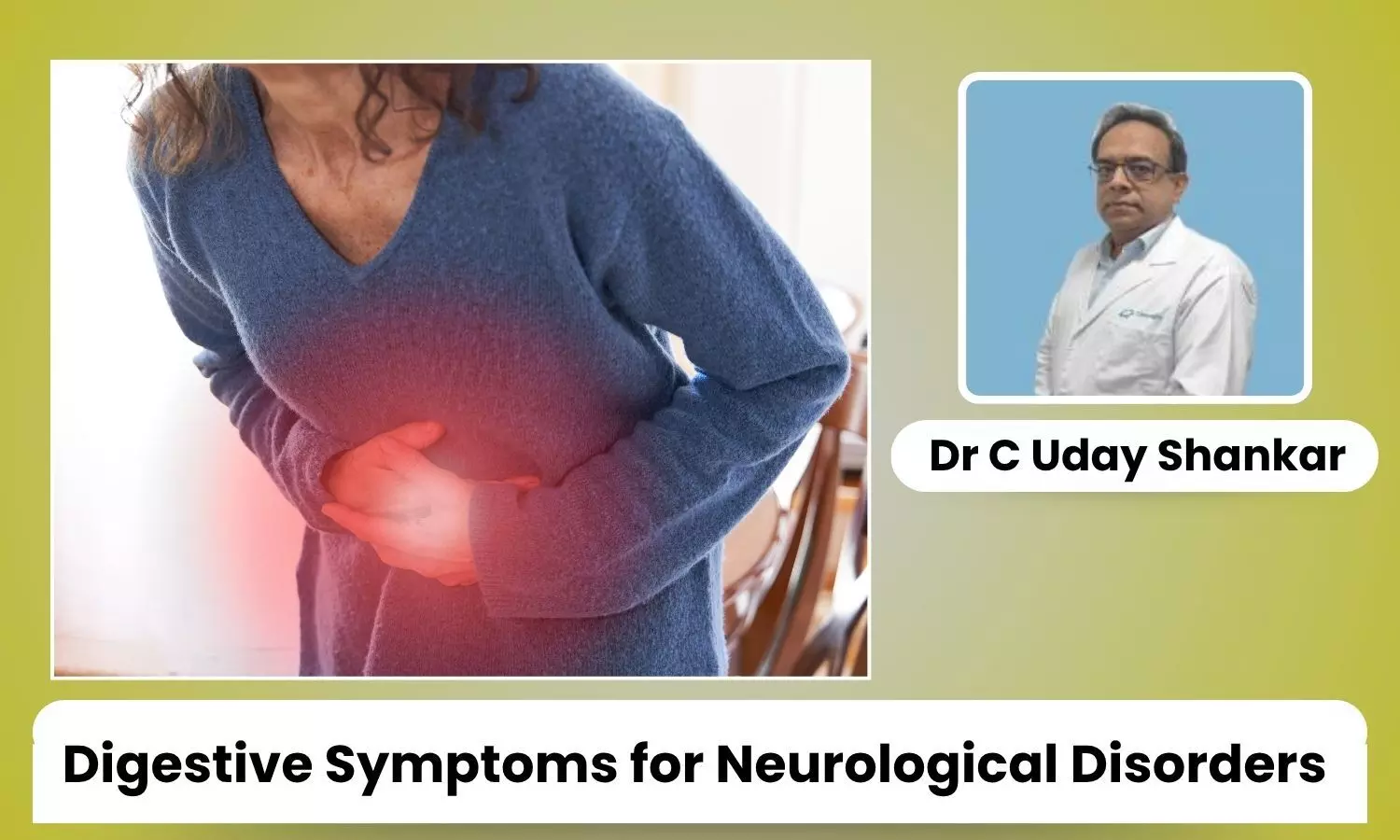Gut Instincts: When Digestive Symptoms Hint at Hidden Neurological Disorders: Dr C Uday Shankar

A bloated belly. Ongoing constipation. Difficulty swallowing that seems unrelated to food choices.
At first, these might be dismissed as routine digestive issues. But in certain cases, they are early signs of underlying neurological conditions appearing long before any tremors, memory lapses, or weakness.
The link between the gut and the brain is deeper than it seems. Known as the gut-brain axis, this complex two-way communication system is turning out to be a key player in several neurological disorders.
Digestive Clues to Neurological Problems
Traditionally, the nervous system and digestive system were studied and treated in isolation. But recent studies, along with patient experiences, are revealing how the gut often gives the first hint when something is amiss within the nervous system.
Parkinson’s disease is a striking example. In many individuals, chronic constipation shows up years before the typical motor symptoms. In some forms of Multiple Sclerosis, early signs include unexplained bowel or bladder disturbances.
Even migraine episodes are frequently linked to digestive upset—nausea, vomiting, and abdominal discomfort often accompany or even precede the headache itself.
These gut-related changes are not coincidental. They form part of the body’s early neurological response.
Why the Gut Holds Answers
Inside the gut lies a complex system of nerves that functions almost like a brain of its own. This network—often called the “second brain”—stays in constant touch with the brain through the vagus nerve, quietly shaping how we digest food, respond to stress, and even how we feel emotionally.
In the early stages of neurological illness, the nerve links between the brain and gut can start to misfire.
This often shows up as changes in bowel habits, a drop in appetite, or strange sensations in the digestive tract—signs that are easy to overlook but important not to ignore. Sometimes, these symptoms surface well before anything appears on a brain scan or clinical exam.
Recognising What’s Not Obvious
The biggest hurdle is that digestive issues are common and often dismissed as lifestyle-related. But when they persist, recur without explanation, or fail to respond to standard treatment, it’s worth asking whether a neurological origin might be involved.
Many individuals spend months, even years, consulting different specialists for their gut symptoms. Unfortunately, this can delay a more accurate diagnosis. Earlier recognition could mean more effective management, especially for progressive neurological conditions.
A Broader Diagnostic Lens
Looking at unexplained gastrointestinal symptoms through a neurological lens doesn’t mean raising alarm unnecessarily. It means recognising patterns—especially when digestive complaints appear alongside fatigue, imbalance, numbness, or subtle mood or memory changes.
More medical centres are adopting an interdisciplinary approach, where neurologists and gastroenterologists collaborate closely.
When tests such as motility studies or nerve conduction evaluations are used together, they can uncover conditions like Parkinson’s, ALS, or autonomic neuropathies at earlier stages.
For instance, difficulty swallowing—medically termed dysphagia—is not always linked to the throat alone. In many cases, it stems from disrupted nerve coordination and deserves a neurological review.
Listening to the Body’s Early Signals
Before any diagnosis is made, the body often gives subtle signals. A shift in digestion, sleep patterns, or mood can hint at something deeper. Of all these, the gut is often the first to raise an early alarm.
Paying attention to these changes—noticing what feels off, even if subtle—can lead to timely investigations and better outcomes.
The Need for Awareness
Most people don’t realise how closely the gut and brain are tied together. It’s not just about treating one symptom at a time—what really helps is stepping back and seeing how everything in the body connects and influences each other.
If someone experiences ongoing digestive problems that resist routine explanation, particularly when paired with neurological symptoms such as tremors, imbalance, or mood fluctuations, it may be time for a more comprehensive evaluation.
In many cases, the earliest answers lie in the places least expected.
Disclaimer: The views expressed in this article are of the author and not of Health Dialogues. The Editorial/Content team of Health Dialogues has not contributed to the writing/editing/packaging of this article.


